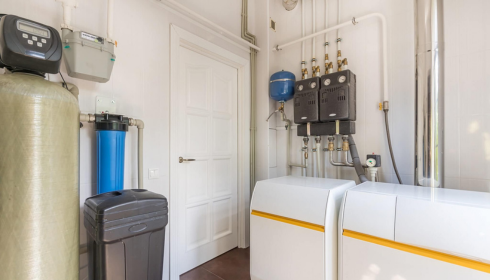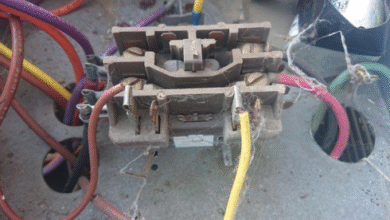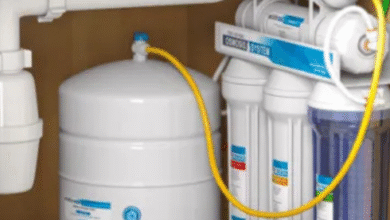Why Businesses Are Rethinking Water Systems: A Closer Look at Modern Softening and Treatment Solutions

Walk into any restaurant, hotel, or factory, and chances are water is quietly shaping the customer experience. It’s in the coffee that tastes crisp and clean, in the spotless glassware on the table, and in the machinery that runs without scaling or downtime. Yet, for years, many businesses didn’t give much thought to what flowed through their pipes—until problems started stacking up. Hard water stains, expensive maintenance, and inconsistent water quality forced people to rethink how much the “invisible” really mattered.
I’ve noticed a shift. Businesses are now treating water management less like an afterthought and more like a strategic move. From cost savings to sustainability, the conversation has grown deeper than “just filter it.”
The Unseen Cost of Hard Water
Hard water might not sound threatening, but it quietly drains money from businesses. Mineral buildup can force appliances like dishwashers and boilers to work overtime, which means higher energy bills and shorter equipment lifespans. Imagine a hotel constantly battling cloudy shower doors or a brewery struggling to maintain recipe consistency—it’s a slow bleed of both reputation and cash.
Installing a reliable system early on can feel like adding an extra layer of insurance, one that pays off every single day in efficiency. That’s why more facilities are turning toward commercial water softener installation, making it a baseline requirement instead of a luxury.
Beyond Softening: The Bigger Picture
Softening tackles scale and mineral buildup, but what about safety? What about the delicate balance of chemicals and pathogens that can slip into municipal or well supplies? A single contaminant issue can trigger health inspections, lawsuits, and customer distrust. Businesses today don’t just want water that’s “fine”—they want water that’s consistent, safe, and meets regulatory standards without a question mark.
This is where water treatment is widening its lens. Companies are moving past one-size-fits-all units and choosing tailored systems that handle volume, industry regulations, and even regional quirks in supply. It’s not unusual to see a hotel chain choosing one model for its New York property and a completely different setup for its location in Arizona.
Maintenance as a Lifeline
There’s something people rarely admit until they’ve lived it: installing a system is the easy part; keeping it running smoothly is the real challenge. Filters clog, resin beds wear down, and sensors go out of calibration. For businesses that rely on water daily, downtime isn’t just inconvenient—it’s costly.
That’s why service agreements and regular tune-ups have become almost as important as the initial purchase. An industrial water softener repair service doesn’t just fix what’s broken; it prevents the breakdown from ever spiraling into a crisis. Think of it as having a mechanic for your water system, one who knows your setup inside and out.
The Local Advantage
We’re in an era where people Google first and call second. If a business owner notices a water issue, their first instinct isn’t to phone a national hotline—it’s to search for commercial water treatment companies near me. Local providers often bring two big advantages: speed and familiarity. They know the quirks of the local supply (like how the groundwater in one county might carry more iron, while another battles with sulfur). And when an emergency hits, proximity can mean the difference between a quick fix and a week of chaos.
This local-first trend is also tied to trust. Business owners like dealing with faces they can meet, service teams that know their facility, and providers who feel accountable because they live in the same community.
Sustainability and the PR Factor
Let’s not forget the optics. Customers today pay attention to how businesses handle environmental responsibilities. From eco-conscious tourists choosing hotels to corporations aligning with green partners, sustainable water practices have become a selling point. Using less salt, reducing wastewater, and installing energy-efficient systems are no longer “nice to have.” They’re statements a company can proudly put on its website or use in marketing campaigns.
And it’s not just for show. Proper treatment reduces waste, conserves energy, and extends equipment life, which lowers the carbon footprint of operations. Businesses that embrace sustainability often find that the savings and reputation boost go hand in hand.
Real-World Scenarios That Hit Home
Picture a mid-sized bakery that relies on water for everything—from dough preparation to cleaning pans. Without treatment, scaling on heating elements drives up energy bills, and chlorine taste affects the final product. With proper softening and treatment, not only does the bread taste better, but the ovens last years longer.
Or take a manufacturing facility where untreated water corrodes cooling towers. The repairs aren’t just expensive; they stall production lines and break client deadlines. Once the company installed a robust softener and maintenance plan, those headaches practically vanished.
These aren’t hypothetical. They’re the everyday wins and losses businesses juggle, often with more at stake than they realized.
What Businesses Should Really Ask Before Investing
If you’re a business owner, the temptation is to chase the cheapest quote or the flashiest pitch. But water systems don’t reward shortcuts. Instead, the right questions look like this:
- How will this system adapt to seasonal water changes in my area?
- What kind of long-term maintenance plan do you provide?
- Can I see testimonials from businesses similar to mine?
- What’s the estimated savings in equipment lifespan and utility bills?
Asking these upfront doesn’t just save money—it ensures peace of mind.
The Future: Smarter, Not Just Bigger
Technology is stepping in to modernize how we think about water. Sensors now track water hardness in real-time, apps alert managers when filters need replacing, and systems automatically adjust output based on demand. The days of “set it and forget it” are fading into “set it and monitor it smartly.”
For businesses, that means less guesswork and fewer nasty surprises. It also opens the door for predictive maintenance, where issues are spotted and resolved before they snowball.
Wrapping It Up
At the end of the day, water is one of those things people don’t appreciate until it goes wrong. For businesses, the stakes are even higher. The restaurant can’t serve cloudy ice. The hotel can’t let guests deal with musty showers. The factory can’t afford downtime when deadlines loom.
So, while it may seem like an invisible investment, smart water management touches every corner of an operation. Whether it’s installing a commercial-grade softener, partnering with a reliable repair team, or finding a trusted local provider, the benefits ripple out in ways both big and small.
Water may not grab headlines, but for any serious business, it’s quietly becoming one of the most important decisions they’ll make.




